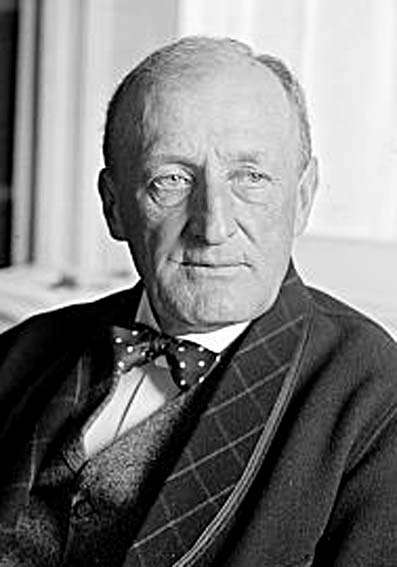The Volokh Conspiracy
Mostly law professors | Sometimes contrarian | Often libertarian | Always independent
Today in Supreme Court History: August 24, 1946
8/24/1946: Justice James McReynolds dies.

Editor's Note: We invite comments and request that they be civil and on-topic. We do not moderate or assume any responsibility for comments, which are owned by the readers who post them. Comments do not represent the views of Reason.com or Reason Foundation. We reserve the right to delete any comment for any reason at any time. Comments may only be edited within 5 minutes of posting. Report abuses.
Please to post comments


Kemp v. Smith, 463 U.S. 1321 (decided August 24, 1971): Powell denies stay of execution; notes that case has been reviewed 16 times by federal and state courts; doubts that Eleventh Circuit will agree with defendant on new issues but notes that they heard arguments the day before (it ruled against defendant, 715 F.2d 1459; after cert and another stay was denied, defendant was executed on Dec. 15, 1983, the first execution in Georgia since death penalty was reinstated in 1976)
Stay denied in 1971, executed in 1983
Nothing like speedy justice!
1971 is a typo. It was 1983.
You're right -- sorry folks!
May be the worst Justice in Supreme Court history. A Woodrow Wilson appointee.
On the other hand, his two best decisions were Meyer v. Nebraska, 262 U.S. 390 (1923), and Pierce v. Society of Sisters, 268 U.S. 510 (1925), but they were built on a shaky foundation.
"May be the worst Justice in Supreme Court history. "
Roger Taney says hello.
Though he was a giant Jew hater and racist and a very disagreeable person. Story is he left the conference room while Brandeis spoke.
I'd not come across him until today. On reading up on him via the Wikipedia entry, it seems that the only thing in his favour concerning his antisemitism and overall bigotry was that he wasn't a hypocrite.
I read a different story: At the conferences, when asked his initial opinion of a case, McReynolds would look at Brandeis and comment. "What does the kike say?" I'd have had more respect for Brandies if he'd have jumped over the table, punched McReynolds in the face, and said, "That's what the kike says."
Some years ago, a memoir by McReynolds's clerk was published (I forgot the details). It did not enhance his reputation.
I read a different story: At the conferences, when asked his initial opinion of a case, McReynolds would look at Brandeis and comment. "What does the kike say?" I'd have had more respect for Brandeis if he'd have jumped over the table, punched McReynolds in the face, and said, "That's what the kike says."
Some years ago, a memoir by McReynolds's clerk was published (I forgot the details). It did not enhance his reputation.
McReynolds was a curious character. He was a racist and elitist, traits he shared with President Woodrow Wilson, the man who appointed him to the position of Attorney General and later to the Supreme Court.
As an assistant attorney general, he had crusaded against the tobacco trusts, and in his short stint as Attorney General, continued to go after trusts. He was expected to be a progressive justice. His chief detractors, in fact, viewed him as a dangerous radical. No one could have predicted he would become one of the most conservative justices in history. (I suspect this, more than his character failings, accounts for the particularly harsh assessment he has received from historians). A member, along with Justices Sutherland, Van Devanter, and Butler, of the faction known as "the Four Horsemen", the bane of FDR's New Deal and impetus for his court-packing scheme, even Chief Justice Taft, icon of conservatism, felt that McReynolds was too conservative.
I give this a "thumbs up."
That is a fair assessment. He felt that economic rights deserved as much protection as individual rights. He reminds me of one of the co-bloggers here.